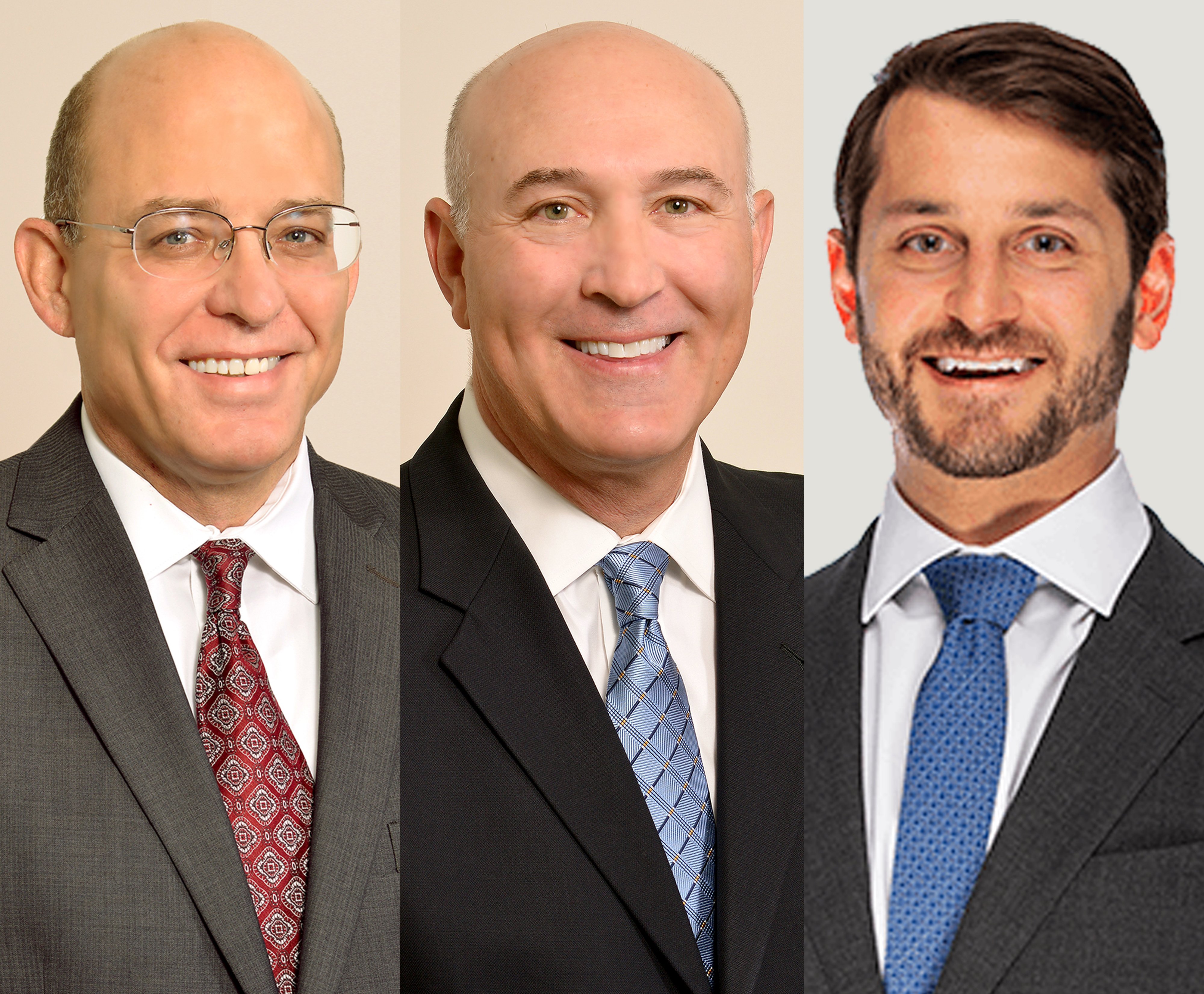Deals Made in a Garage: How Florida Attorneys Are Adjusting to the Pandemic
As most attorneys surpass the second month of working remotely, they are working on mastering the little things that are now necessary to continue closing deals.
April 08, 2020 at 05:41 PM
3 minute read
 (l-r) Thomas Ringel, Jodi Colton, Stefan Chin, and David S. Henry. Courtesy photos
(l-r) Thomas Ringel, Jodi Colton, Stefan Chin, and David S. Henry. Courtesy photos
Tom Ringel has been closing deals in an usual place: the garage of his Miami law firm.
It's one of the ways the real estate attorney and founding shareholder of Markowitz Ringel Trusty + Hartog is adjusting to public efforts to stem the spread of the coronavirus.
"They close the windows and turn the AC on, so they are comfortable," Ringel said. "I stand outside of the car with gloves and a mask, and call them from my cellphone to explain what they are signing. They listen on their car speaker and ask any questions that they might have."
The technique allows both parties to practice proper social distancing. So far, Ringel has closed seven transaction this way. He has several more planned in the next two weeks.
New issues
Jodi Colton, a partner at Brinkley Morgan, is opting for mobile notaries. But she's discovering some logistical speed bumps.
"Does that still work in spite of the stay-at-home order?" Colton said.
The mobile notary has to be close enough to see the person signing the document, yet far enough to observe social distancing guidelines. They've been effective for her firm so far, as they also provide online notary services for certain types of documents. Yet Colton fears what the future could bring, especially when time is a factor in closing a case.
"Sometimes we need two witnesses for the notary," Colton said. "And … frankly, I haven't figured out how we are going to accomplish that one yet."
Among the legal documents that fall within this scenario are premarital agreements and wills. It is something, Colton said, she will have to figure out soon, as she expects to face it within the next few weeks.
In the meantime, if someone has an urgent need to sign a document in a case, Colton has a third option: Allow the client to come into her office, while taking into account the 6-foot social distancing safety precaution.
Technological safeguards
Using online services to close deals requires precautions taken in advance.
Stefan Chin, a partner at Peckar & Abramson, regularly prepares documents for filing online, so the transition has been seamless. As does David S. Henry, who is a partner at Kelley Kronenberg. They each credit having a strong information technology team.
Henry advises other attorneys to coordinate with their IT department ahead of time. Otherwise, a lawyer could run the risk of discovering faulty technology at a key moment, such as near the closing of the deal, in a deposition or during a hearing.
"The expectation is to provide superb client service," Henry said. "You'll be surprised that someone has an older laptop that is not compatible, or somebody else needs an update, or someone else needs this or that."
This content has been archived. It is available through our partners, LexisNexis® and Bloomberg Law.
To view this content, please continue to their sites.
Not a Lexis Subscriber?
Subscribe Now
Not a Bloomberg Law Subscriber?
Subscribe Now
NOT FOR REPRINT
© 2025 ALM Global, LLC, All Rights Reserved. Request academic re-use from www.copyright.com. All other uses, submit a request to [email protected]. For more information visit Asset & Logo Licensing.
You Might Like
View All
2,000 Docket Entries: Complex South Florida Dispute Sets Precedent

Million-Dollar Verdict: Miami Jury Sides With Small Business


Miami-Dade Litigation Over $1.7 Million Brazilian Sugar Deal Faces Turning Point
3 minute readLaw Firms Mentioned
Trending Stories
- 1Public Notices/Calendars
- 2Wednesday Newspaper
- 3Decision of the Day: Qui Tam Relators Do Not Plausibly Claim Firm Avoided Tax Obligations Through Visa Applications, Circuit Finds
- 4Judicial Ethics Opinion 24-116
- 5Big Law Firms Sheppard Mullin, Morgan Lewis and Baker Botts Add Partners in Houston
Who Got The Work
J. Brugh Lower of Gibbons has entered an appearance for industrial equipment supplier Devco Corporation in a pending trademark infringement lawsuit. The suit, accusing the defendant of selling knock-off Graco products, was filed Dec. 18 in New Jersey District Court by Rivkin Radler on behalf of Graco Inc. and Graco Minnesota. The case, assigned to U.S. District Judge Zahid N. Quraishi, is 3:24-cv-11294, Graco Inc. et al v. Devco Corporation.
Who Got The Work
Rebecca Maller-Stein and Kent A. Yalowitz of Arnold & Porter Kaye Scholer have entered their appearances for Hanaco Venture Capital and its executives, Lior Prosor and David Frankel, in a pending securities lawsuit. The action, filed on Dec. 24 in New York Southern District Court by Zell, Aron & Co. on behalf of Goldeneye Advisors, accuses the defendants of negligently and fraudulently managing the plaintiff's $1 million investment. The case, assigned to U.S. District Judge Vernon S. Broderick, is 1:24-cv-09918, Goldeneye Advisors, LLC v. Hanaco Venture Capital, Ltd. et al.
Who Got The Work
Attorneys from A&O Shearman has stepped in as defense counsel for Toronto-Dominion Bank and other defendants in a pending securities class action. The suit, filed Dec. 11 in New York Southern District Court by Bleichmar Fonti & Auld, accuses the defendants of concealing the bank's 'pervasive' deficiencies in regards to its compliance with the Bank Secrecy Act and the quality of its anti-money laundering controls. The case, assigned to U.S. District Judge Arun Subramanian, is 1:24-cv-09445, Gonzalez v. The Toronto-Dominion Bank et al.
Who Got The Work
Crown Castle International, a Pennsylvania company providing shared communications infrastructure, has turned to Luke D. Wolf of Gordon Rees Scully Mansukhani to fend off a pending breach-of-contract lawsuit. The court action, filed Nov. 25 in Michigan Eastern District Court by Hooper Hathaway PC on behalf of The Town Residences LLC, accuses Crown Castle of failing to transfer approximately $30,000 in utility payments from T-Mobile in breach of a roof-top lease and assignment agreement. The case, assigned to U.S. District Judge Susan K. Declercq, is 2:24-cv-13131, The Town Residences LLC v. T-Mobile US, Inc. et al.
Who Got The Work
Wilfred P. Coronato and Daniel M. Schwartz of McCarter & English have stepped in as defense counsel to Electrolux Home Products Inc. in a pending product liability lawsuit. The court action, filed Nov. 26 in New York Eastern District Court by Poulos Lopiccolo PC and Nagel Rice LLP on behalf of David Stern, alleges that the defendant's refrigerators’ drawers and shelving repeatedly break and fall apart within months after purchase. The case, assigned to U.S. District Judge Joan M. Azrack, is 2:24-cv-08204, Stern v. Electrolux Home Products, Inc.
Featured Firms
Law Offices of Gary Martin Hays & Associates, P.C.
(470) 294-1674
Law Offices of Mark E. Salomone
(857) 444-6468
Smith & Hassler
(713) 739-1250






